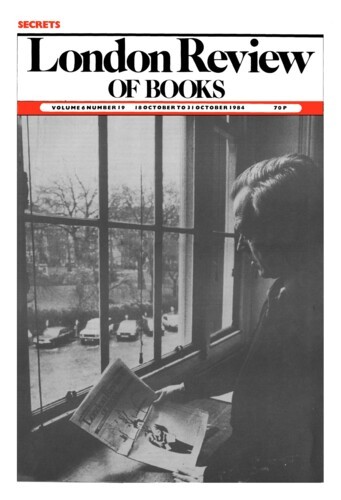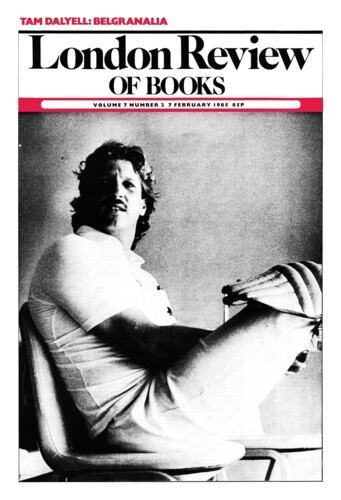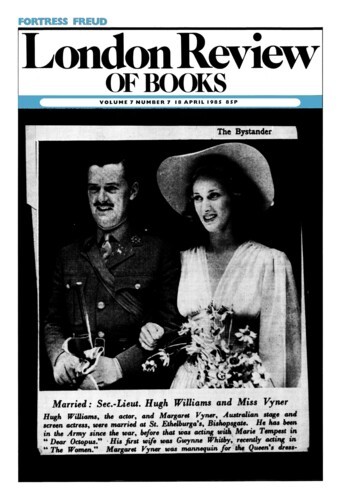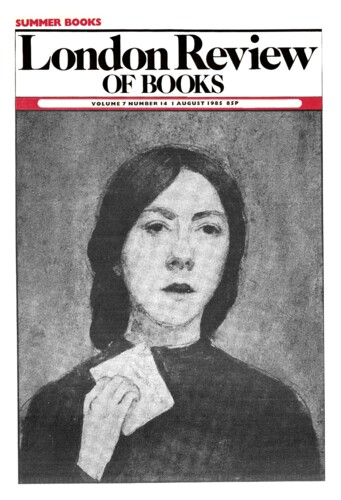Arsenals
Nicholas Spice, 18 October 1984
It can’t be doubted that On the Perimeter and The Witches of Eastwick are quite different kinds of book. They were destined to be sold, reviewed and read separately. They have fallen together here by chance and a certain editorial logic, and though at first they appear strange bedfellows, they turn out to breed fruitfully with one another. They should be bought and read together, for they are both in their different ways texts for (and perhaps of) the end of time, books of the Apocalypse. Between them they raise many important issues about the nature of men and women and the nature of nature: On the Perimeter by virtue of a chilling subject-matter fixed with a steady eye, The Witches of Eastwick through the potency of John Updike’s imaginative release.





